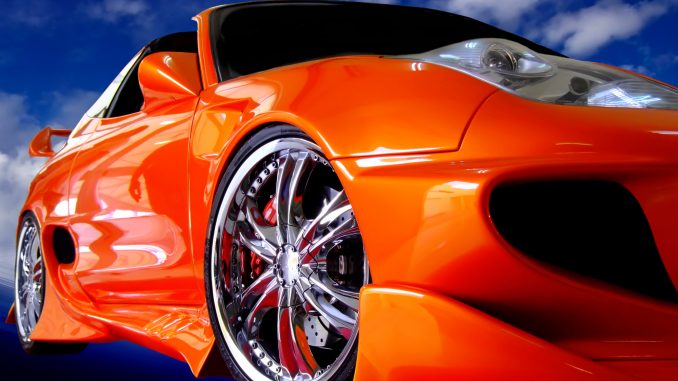
Detroit, Michigan used to be the center of a bustling industry. Then the 2008 recession dropped the buying of American cars and their production went down.
Tons of workers got laid off and there was a panic in the domestic car industry. People weren’t buying cars and if they were, they weren’t American.
The economy is in a better place now, but many people still prefer imported cars. People think they’re made better and they have higher efficiency, that’s a fact.
What are the benefits of bringing a foreign car over? Wouldn’t that be more expensive? We’re answering your questions below.
The Pro’s of Imported Cars
American cars are getting better, there’s no doubt about that. We’re making steps in the electric and high-efficiency directions.
We’re not quite where foreign cars are yet, here’s why they’re better.
Quality
The website, book publisher, and general knowledge base Consumer Reports rank the best cars on a scale of one to 10.
Most of the time, more than half of the top 10 most reliable cars are foreign. Domestic cars consistently make the lowest rated list.
There isn’t consistency with quality of American cars. The Ford Fusion and Chevy Malibu are great, but Ford’s other offerings feel and drive like tin cans.
Europe has more consistent requirements and ratings for car manufactures. That means across the board of brands, you can spend your money without worrying about lemons.
Efficiency and Electric Cars
The Nissan Leaf has been a big hit in the American electric car market. Plenty of Nissan’s are manufactured in the US, but the company hails from Japan.
The Japan-based multinational company has a lock on the electric market right now. Before that, it was Toyota with the Prius, another Japanese company.
The Japanese (in these examples) care more about producing effective and low emission cars. Americans buy them, which is why domestic brands are starting to get in on the game.
Tesla is another big name in the electronic market, but at a higher price point.
Domestic car manufacturers have a lot of catching up to do!
Even if you buy a non-electric foreign import, you’ll get around 10 to 20 miles more to the gallon. No oversized-for-show cars there and their emissions standards require higher MPG standards.
All Standards are Higher
Not only are the cars from Europe and Asia more consistent across the board, they’re safer.
The EU has continent-wide safety-rating requirements. Unlike the US, where one car is safe for these situations but has a high rollover rate (we’re looking at you Jeep).
The brakes and steering have higher standards as well, you can’t get consistency like that in the US.
Better Engine
Since European cars have such high governing standards, they’re made of better quality materials. If you look under the hood, the engines are mostly metal and high-grade metals like titanium at that.
The average European only buys one car in their life and it lasts them a good and long time. Maybe that’s because they have more public transport options, but we think it’s probably both.
The better engine lends itself to higher mileage per gallon too. There’s nothing bad about a higher quality car!
Cons to Import Vehicles
Not even the biggest import car fan will tell you everything about buying foreign is good. There are a few issues with importing, as there are with all things!
One of those things is getting replacement parts.
Replacement Parts
If you buy a car not available in the US and it needs repairs or a new part, you’re out of luck. Getting that part is going to cost much more than finding one for a domestic car.
It’s likely your mechanic will have to special order it from overseas. You then have to wait, pay more for the part, and use another mode of transportation while you wait.
It’s a toss-up. Most foreign cars need fewer repairs over their lifetimes, but when they do it’s more expensive.
You also may have to pay more to take your car to a foreign-specific auto shop. These mechanics can charge more for the specialization factor.
Insurance Costs
Depending on the popularity of the import brand, your insurance may charge you more per month. They know that parts are hard to get and general maintenance is more expensive.
Make sure you call your insurance agency before you pay for and import a car. They’ll talk you through any heightened rates.
Illegal Distributors
Just because the cars are higher quality and more trustworthy doesn’t mean all people importing them are. You can get ripped off by foreign dealers if you aren’t careful. Make sure you learn more about your car dealer first.
Buying a car sight unseen is a risk, no matter what continent it’s from. Make sure whoever you buy the car from has a good rating and has industry credit.
If you get a bad feeling about a vendor, don’t stick it out. Your gut is usually right.
Weighing the Pros and Cons
In the end, it’s up to you. Do you want a higher quality car that will last longer but have more expenses less often?
You’ll have to do your own cost comparisons of imported cars vs domestic like car models. If the import car is cheaper, will the savings still be notable with higher insurance and repair costs?
What about all the money you’ll save on gas with a higher efficiency engine? Your budget will essentially make your decision for you.
Do you have other car questions? Want more car list pros and cons? We’ve got you covered on our blog.
